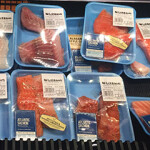Royal Greenland takes hit from loss of Russian prawn market

External factors such as rising oil and energy prices, inflation, and the Russia-Ukraine conflict – the latter of which resulted in the loss of the lucrative Russian shell-on prawn market – all impacted Royal Greenland’s earnings in the first half of this year.
According to the Nuuk, Greenland-headquartered seafood company’s H1 2023 financial report, it recorded a loss before taxes of DKK 113 million (USD 16.3 million, EUR 15.2 million) for the six months ending 30 June, 2023, which it called “unsatisfactory.” In the corresponding period of last year, it achieved a profit of DKK 96 million (USD 13.8 million, EUR 12.9 million).
Cost increases alone for the company totaled DKK 240 million (USD 34.6 million, EUR 32.2 million), and sales price increases of around DKK 130 million (USD 18.7 million, EUR 17.4 million) only partly compensated for the spike in costs. Another contributing factor to its tough H1 2023 was lower coldwater prawn catches in Greenland, which the company said may be due to a decline in the stock and poor ice conditions.
Royal Greenland suffered a loss of 1,000 metric tons of sales after hitting a pause on sales of its shell-on prawns to Russia, the world’s second-largest market for the product. Compounding the issue is that the Ukraine conflict and the subsequent boycott of Russian products by many Western markets has led to Russian crab exports flooding Asia, challenging Royal Greenland’s crab sales in the region, with a particular impact on sales prices in Japan, the company said.
In volume terms, Royal Greenland’s largest product category is prawns. A relatively strong market and high demand from markets like China were not enough to quell the tide of harmful external factors, with the company selling 25 percent fewer shell-on prawns in H1 2023 than in the first half of 2022.
Furthermore, highlighting that cooked and peeled coldwater prawns are “a distinctly European product,” the category has been “severely affected” by the market slowdown in Europe. This, the company stated, is a consequence of general economic conditions such as rising inflation, but is also due to Brexit ...
Photo courtesy of Royal Greenland




Share